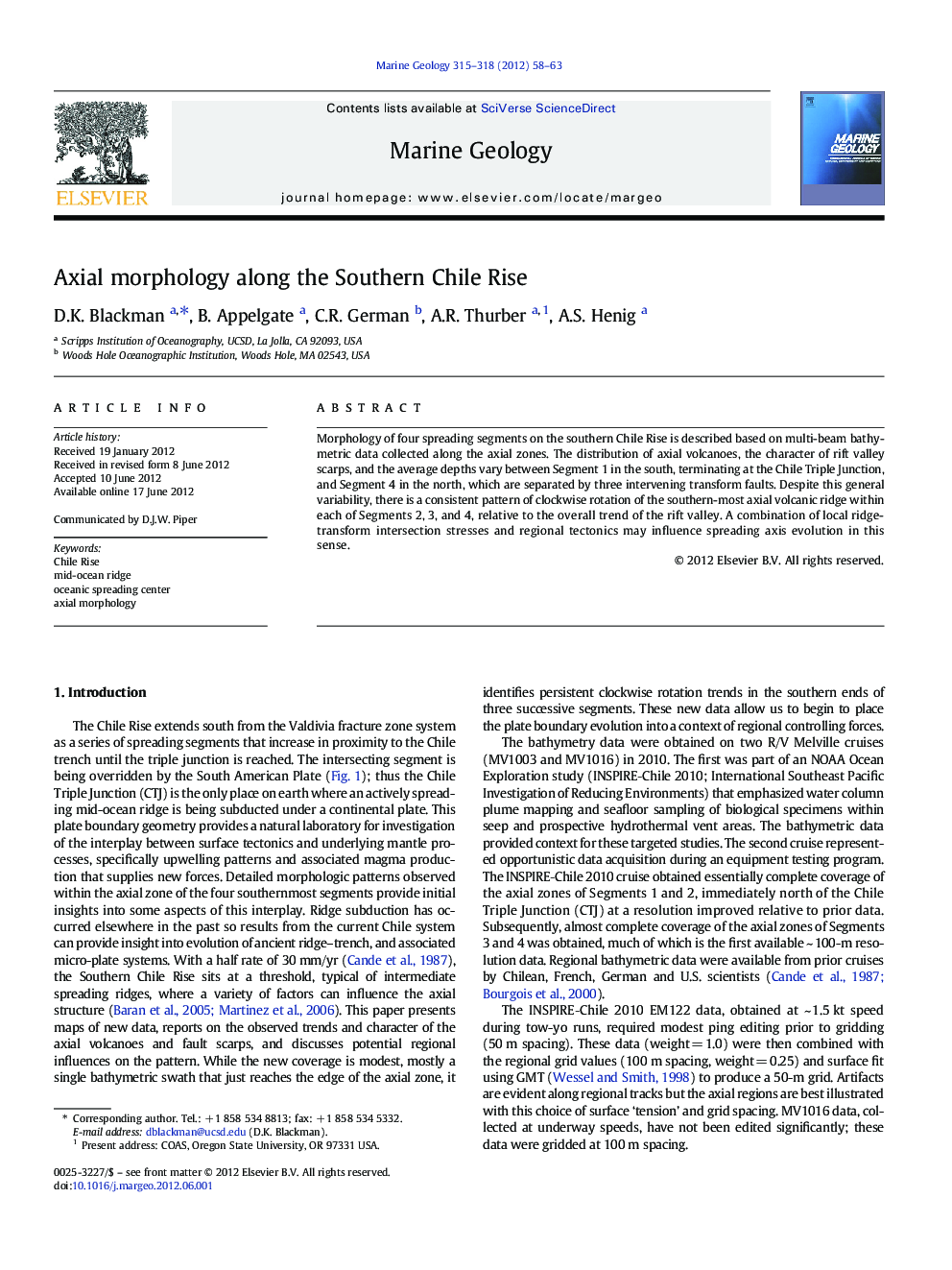| کد مقاله | کد نشریه | سال انتشار | مقاله انگلیسی | نسخه تمام متن |
|---|---|---|---|---|
| 4718578 | 1639123 | 2012 | 6 صفحه PDF | دانلود رایگان |

Morphology of four spreading segments on the southern Chile Rise is described based on multi-beam bathymetric data collected along the axial zones. The distribution of axial volcanoes, the character of rift valley scarps, and the average depths vary between Segment 1 in the south, terminating at the Chile Triple Junction, and Segment 4 in the north, which are separated by three intervening transform faults. Despite this general variability, there is a consistent pattern of clockwise rotation of the southern-most axial volcanic ridge within each of Segments 2, 3, and 4, relative to the overall trend of the rift valley. A combination of local ridge-transform intersection stresses and regional tectonics may influence spreading axis evolution in this sense.
► Southern Chile Rise axial volcanic ridges rotate several degrees from segment trends.
► Simple models of ridge-transform intersection forces do not explain this recent evolution in trend.
► Regional plate edge forces are in play- lithosphere age and resistance to subduction at trench slope.
Journal: Marine Geology - Volumes 315–318, 15 June 2012, Pages 58–63